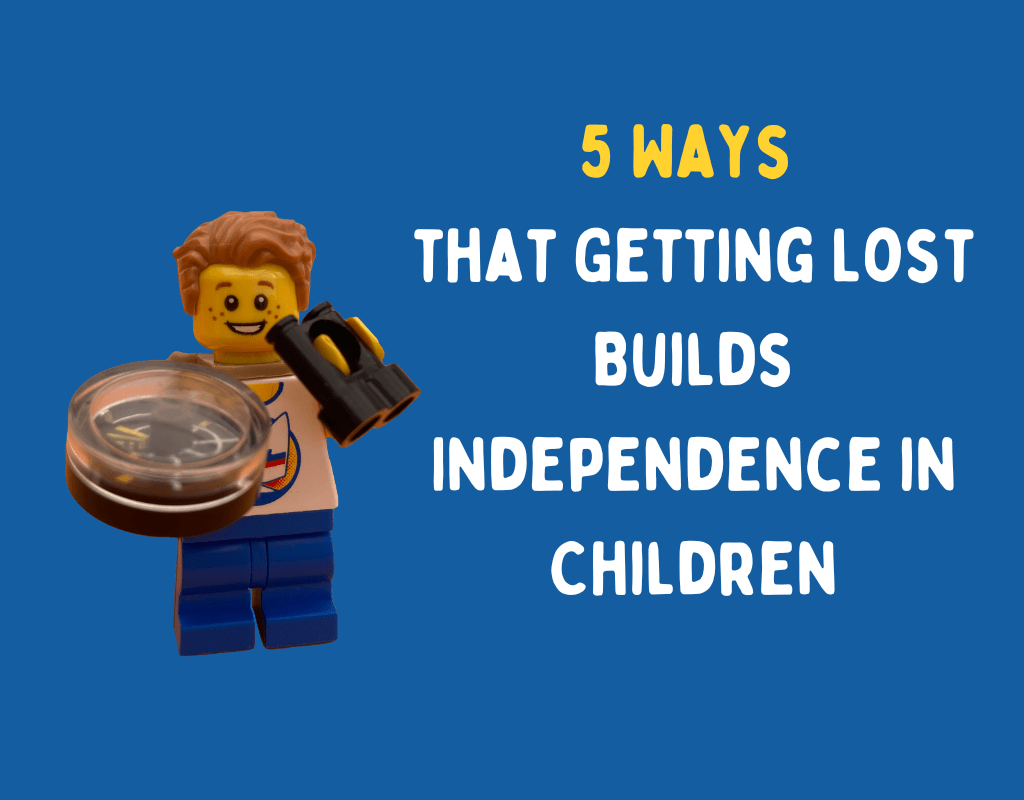A big part of building independence in children is letting them walk to and from home alone. And a question that a lot of us ask is what age do you let them stretch the boundary and take that step? As a general rule, most Primary Schools start letting children leave school unaccompanied around the age of 9 or 10. But it can feel daunting to suddenly let your child have this responsibility. But the benefits of enabling your child to walk alone, get lost and build some independence can outweigh the risks of getting lost if done properly. Here are our 5 Ways to ensure that getting lost builds confidence, independence and self-esteem.
Read our full Getting Lost story here.
Getting Lost: Building Independence in Tweens
1. It Teaches Safety First
Tweens are on the cusp of spreading their wings. They are full of anticipation of what the big wide world can offer. They can be fearless and at the same time anxious to stand on their own feet. So before you let them go, follow these safety steps:
Work out the safest route – if they are heading back and forth to school alone and they need to cross a busy road, find the best crossing point. Look for pedestrian crossings, lollipop people etc and agree it with your child. As they grow more confident with the route you may be able to relax this a bit. But start off carefully.
Help them find visual markers on their routes that will direct them back home – signposts, corner shops, school. Sometimes when you get lost heading back towards somewhere familiar first can help you find your way home.
In case of emergency have a way to communicate with each other. And that doesn’t mean they need a smart-phone. “Dumb” phones will work perfectly well in this situation to just ensure that if they need to contact you or vice versa, there is a way.

2. It Allows Real World Problem-Solving
As parents we instinctively do a lot of the road safety for our children without thinking. But are we hindering tweens from building their own road confidence and independence? Once they start walking alone they will need to make their own safety decisions. When they reach cross-roads, they are going to have to decide for themselves which way to turn. And by being able to make their own decisions and being successful (like actually crossing the road, by actually getting to school), their confidence and independence will grow naturally.
And when they get lost, they will need to put all the life skills they have learnt so far into practice. Like managing their anxiety or fear, making decisions of which way to go and whether they need to turn back. If they are with friends, you will find that some of them will start practising leadership skills. And learning the skill for when to ask for help and who. The list goes on and on.

3. It Prepares for High School
And all of these skills are vital for getting ready for the next big chapter in their lives – High School. Remember those first few weeks of being in a big new school and getting lost constantly. Of having to find your way in a new place, find your place in a new group of peers. Of suddenly being considered responsible enough to get back and forth to school (sometimes on public transport) on your own.
The transition can be eased by growing their independence and confidence in smaller steps in the previous few years. So let them go off and explore. Let them start walking ahead. Let them start crossing roads without you. And let them get a little bit lost.

4. It Grows Trust & Connection
As parents we need to remember that alongside building our tweens independence, we also need to be growing trust. Growing trust in our children, that we are confident in their ability to get themselves safely from A to B. That we are supporting them as they take those scary first steps into becoming fully independent. To assure them that they are not going to get into trouble for getting lost.
Getting lost won’t always look like a success. Getting lost can be exciting but also traumatic. It can be thrilling and it can be terrifying. It will often be up to you to help your child reframe their experience to find the positive. To find the learning experience. To ensure that however they were finally found, they have achieved something.

5. Share Your Story...
It can be easy as your tween gets older and more independent to stop talking to them. As they head off on their own, there is less opportunity to chat to them about their day or how they are doing. You may need to carve out different moments in the day to connect if you are no longer walking to school and back together. But the effort is completely worth it.
More Information
Here is a simple guide to road safety to chat through with your child.
More Stories...
For more stories, head over to our blog page.
DISCLAIMER: The Lego Group of Companies does not sponsor, authorise or endorse this site.

